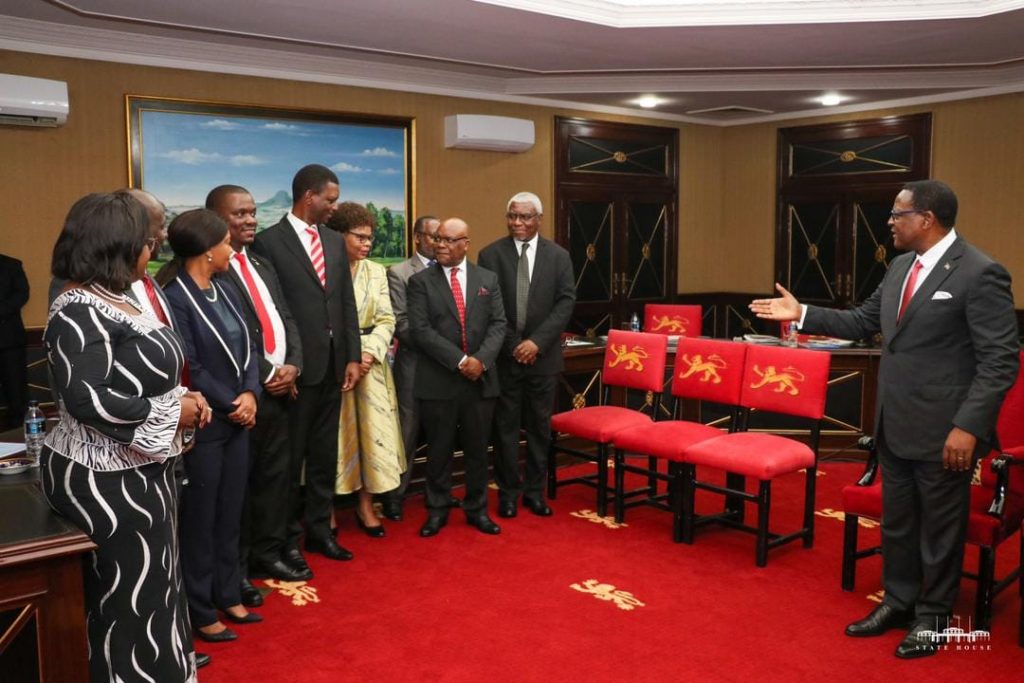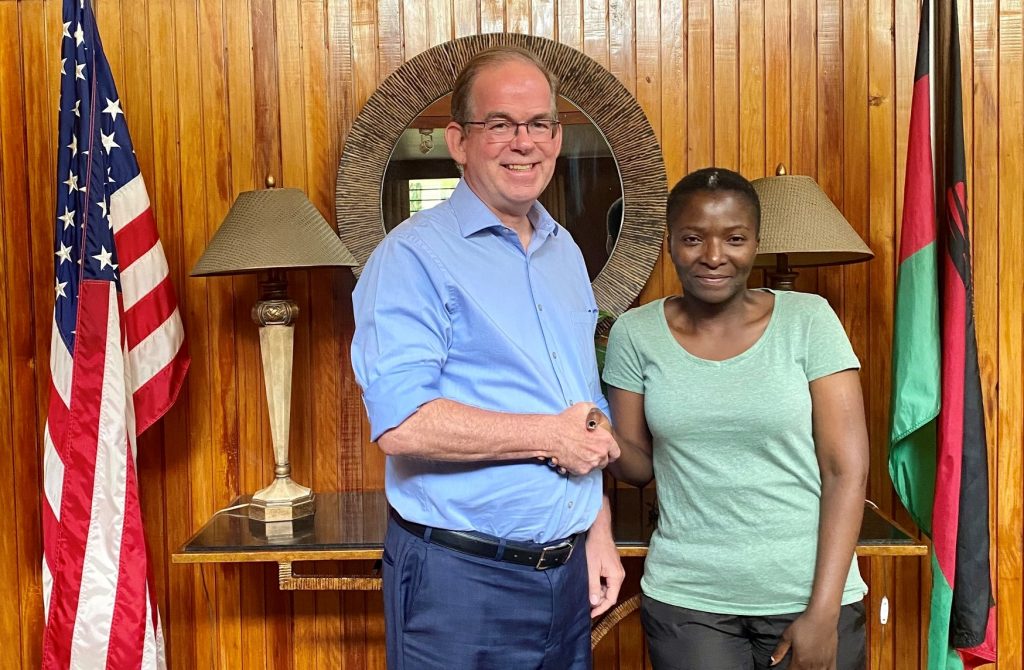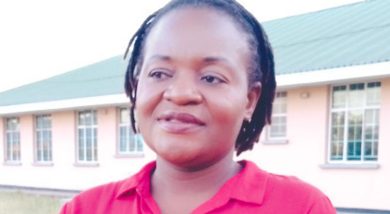USA threatened sanctions—AG
The United States of America threatened economic sanctions against Malawi if authorities did not unconditionally release Anti-Corruption Bureau (ACB) director general Martha Chizuma, a full report on the inquiry into her arrest shows.
The commission’s final report released last night quotes Attorney General (AG) Thabo Chakaka Nyirenda on page 33 as having testified that he was approached by US Ambassador David Young and Acting British High Commissioner Sophia Willets-King on December 6 2022, the day Chizuma was arrested for a defamation complaint lodged by Director of Public Prosecutions (DPP) Steven Kayuni.

“The US Ambassador had demanded the unconditional release of the DG of ACB and that if this was not done, the US Government would subject the people involved in the arrest to travel bans and impose economic sanctions on the country,” the report of the commission chaired by retired Justice of Appeal Edward Twea quotes the AG.
The report said the AG further quoted the acting British High Commissioner as having asked the Malawi Government to ensure that Chizuma was released.
Ironically, Minister of Justice Titus Mvalo announced in Parliament on December 6 2022 that Chizuma was discharged unconditionally and that her charges were withdrawn. However, Chizuma’s lawyers demanded formal written communications which were yet to be provided.
Police, on the other hand, said the ACB boss was released on police bail pending formal charging in court.

Police’s action attracted a backlash, with many questioning why they decided to arrest a woman in her pyjamas at dawn and drove her about 50 kilometres out of town to Namitete Police Station.
The commission presented its final report to President Lazarus Chakwera on Tuesday this week at Kamuzu Palace in Lilongwe. The President directed Secretary to the President and Cabinet (SPC) Colleen Zamba to make public the inquiry report.
However, Zamba on Tuesday night only made public 22 pages of the report starting with page 50 containing key findings and recommendations. Pages one to 49 were not included, a development that on Wednesday sparked uproar on social media platforms.
Malawi Law Society (MLS) also weighed in and questioned the disparity between findings of the commission and the President’s wish to zero in on the arrest.
In a statement issued on Wednesday co-signed by MLS president Patrick Mpaka and honorary secretary Chrispin Ngunde, the lawyers’ body said the President appointed the commission because there were matters of concern to the public on Chizuma’s arrest.
MLS said the President’s authority was clear that the commission needed to establish circumstances surrounding the arrest and not to inquire into the conduct of Chizuma.
Reads the statement: “However, pages 50-60 [of the report] seem to suggest that the commissioners had different terms of reference [ToRs] from the direct question concerning the arrest as raised in the 6th December 2022 appointment notice known to the public.
“The public must be allowed to evaluate how such possible variance in the scope of assignment might have arisen or indeed there is any variance at all.”
Lawyer Justin Dzonzi, who is conversant with roles of commissions of inquiry, said Zamba’s partial release of the inquiry report after the President had assured Malawians it would be laid bare makes him look bad and insincere.
But in an interview before the final report was released, Minister of Information and Digitisation Gospel Kazako, who is also official government spokesperson, said in a written response on Wednesday that government was set to release the report “soon”.
He said: “The President directed that the findings and recommendations of the report be released immediately because that is what was read to him by the commission [on Tuesday]. He needed time to read the remaining chapters of the report for his knowledge and understanding.”
Dzonzi, on the other hand, said previous commissions of inquiry may be justified not to release everything they found for fear of putting lives of people concerned in danger, but he ruled out that possibility in the case at hand.
However, he said the Twea inquiry does not contain issues that may put lives of people in danger and he questioned the rationale of releasing it in bits.
“It makes the President look bad. It does not clear the anxiety the public had on this issue. Going by the commentaries on the social media, it is clear the public are not satisfied with this outcome. It is very shocking to have a report in the manner it came,” said Dzonzi.
When the commissioners were sworn in, Deputy SPC Janet Banda issued a statement that the commission would investigate matters of public and national interest concerning allegations of improper conduct, abuse of office and illegality surrounding the arrest of Chizuma and all matters ancillary.
But in the findings and recommendations, Kayuni and Chizuma are two top public officers to face action as recommended by the inquiry.
The commission said action should be taken against Chizuma for her conduct on the leaked audio where she discussed details of an investigation with a third party.
Ironically, when the audio went viral in January 2022, the President publicly reprimanded Chizuma for her conduct, but pardoned her.
On Kayuni, the commission also recommended that action be taken against him as his December 3 2022 criminal libel complaint to police led to Chizuma’s arrest.
It also said the DPP and the AG testified that they had challenges on how Chizuma was handling confidential information and exposing it to third parties as well as lack of collaboration from her office on some cases.
The inquiry also failed to pin down “critical members of the Executive” who it said evidence showed were aware of Chizuma’s arrest on December 6 2022 before Parliament began proceedings for the day. It recommended that “government side should be proactive and take control in times of crisis”.
Police arrested Chizuma in a dawn raid of her house on December 6 2022 and took her to Namitete Police Station, about 50 kilometres out of Lilongwe City.






One Comment